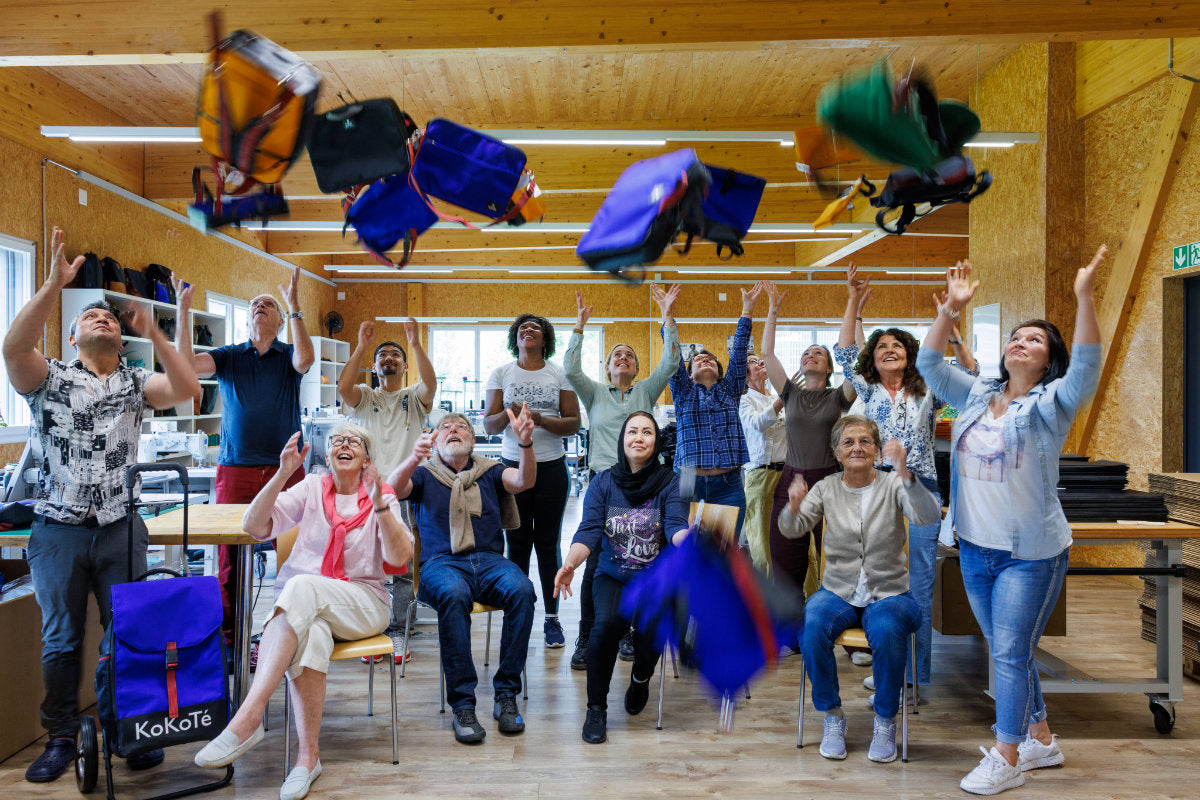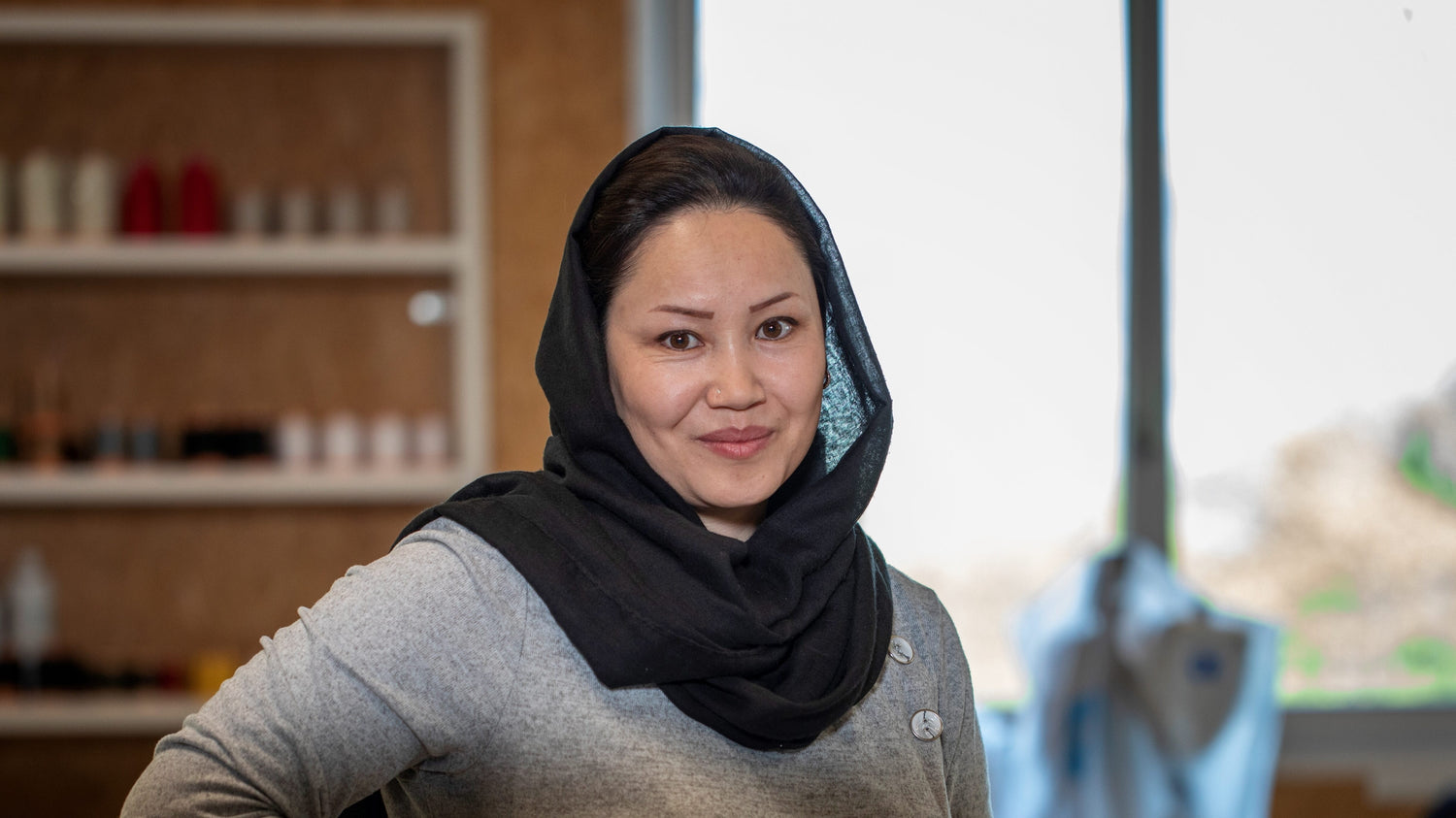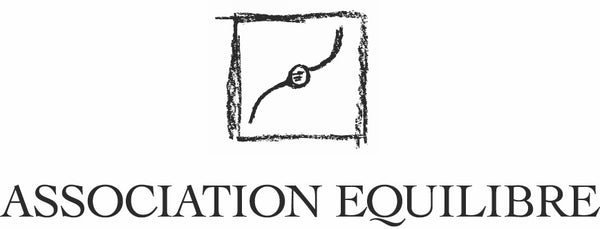Education and labor integration
Action instead of complaining – we launch and support projects that are put into action locally. Simple, humane, and direct.
The projects of the Association Equilibre are primarily aimed at people with a refugee background who are older than 26 and do not have a professional qualification recognized in Switzerland.
This is where the projects of the Association Equilibre come in. These include internships with potential assessment and integrated training, gap years for catch-up training, and pre-apprenticeships. All projects provide people with a refugee background with concrete career prospects and, in the long term, a life in Switzerland independent of social assistance.
Projects:

KoKoTé – The Uri Bag Manufactory
KoKoTé is both a professionally managed company for bags and accessories of the highest quality and a unique social project. Entrepreneurs, a renowned designer, and people with a refugee background work together in Uri.
The goal is to prepare adults with a refugee background (especially women over 26) for the Swiss labor market through remedial training and practical experience. Through an internship, they learn what Swiss employers expect in terms of reliability, cooperation, and behavior.
A certain language level (tested at the beginning and end of the internship) is a prerequisite for a follow-up solution: be it a pre-apprenticeship (VOL 26+), a vocational training (EFZ/EBA), or a permanent position. Almost 80% achieve this goal – thanks in part to ongoing adjustments to training and support measures.

Women's empowerment project
The Equilibre Association's women's empowerment project is aimed at refugee women over the age of 26 with family responsibilities living in Switzerland. The goal is to provide them with access to recognized vocational training (EBA or EFZ) and to support them on their path to a self-determined, financially independent life.
Since many of these women have little or no formal education and often live in isolation, the project offers individualized learning and education plans tailored to their prior knowledge, life circumstances, and learning goals. The duration of the refresher course can range from one to five years, depending on needs.
The participants are accompanied by experienced professionals, including vocational trainers and mentors, who provide both professional and personal support. The project places particular emphasis on practical learning, building self-confidence, and long-term integration into society and the world of work.
The project is primarily funded by the Hirschmann Foundation. Additional support comes from cantonal offices, integration offices, the RAV (Public Employment Office), the Swiss Red Cross, as well as private companies and foundations. The women's children also benefit indirectly from their mothers' improved educational opportunities and social integration.
